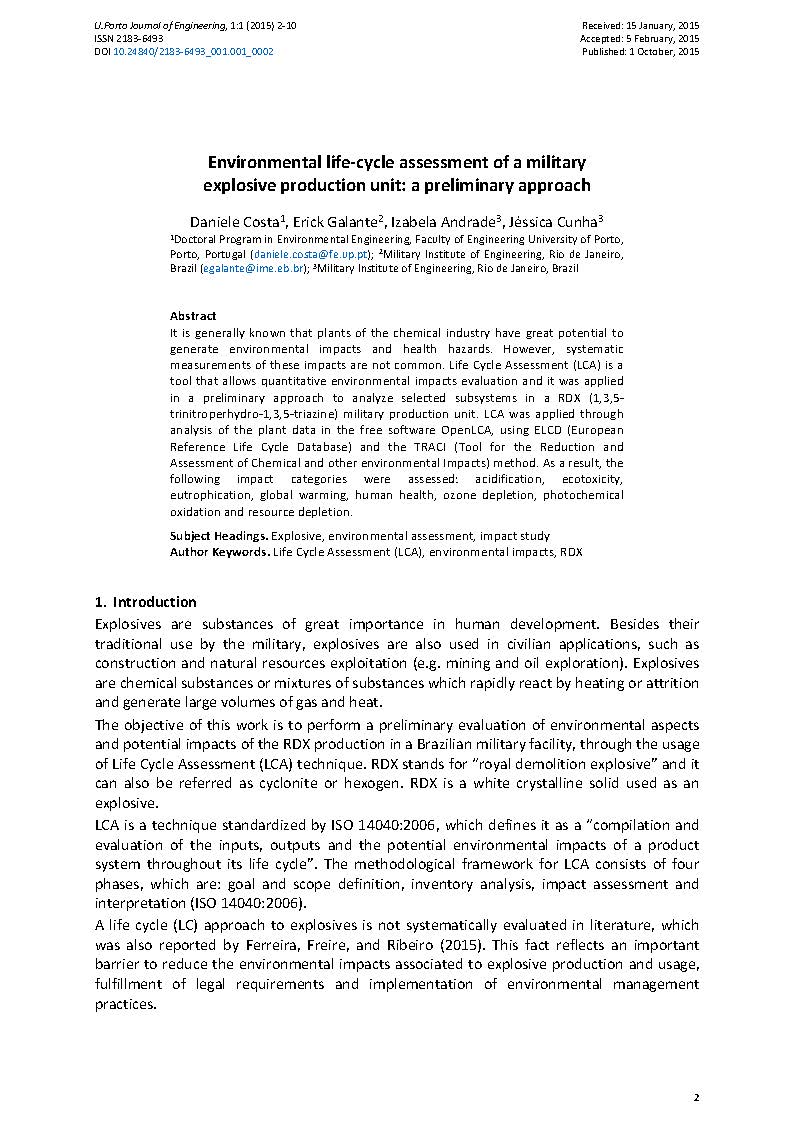Environmental life-cycle assessment of a military explosive production unit: a preliminary approach
Main Article Content
Abstract
It is generally known that plants of the chemical industry have great potential to generate environmental impacts and health hazards. However, systematic measurements of these impacts are not common. Life Cycle Assessment (LCA) is a tool that allows quantitative environmental impacts evaluation and it was applied in a preliminary approach to analyze selected subsystems in a RDX (1,3,5-trinitroperhydro-1,3,5-triazine) military production unit. LCA was applied through analysis of the plant data in the free software OpenLCA, using ELCD (European Reference Lyfe Cycle Database) and the TRACI (Tool for the Reduction and Assessment of Chemical and other environmental Impacts) method. As a result, the following impact categories were assessed: acidification, ecotoxicity, eutrophication, global warming, human health, ozone depletion, photochemical oxidation and resource depletion.
Downloads
Article Details
Authors who publish with this journal agree to the following terms:
- Authors retain copyright and grant the journal right of first publication with the work simultaneously licensed under a Creative Commons Attribution License that allows others to share the work with an acknowledgement of the work's authorship and initial publication in this journal.
- Authors grant the journal the rights to provide the article in all forms and media so the article can be used on the latest technology even after publication and ensure its long-term preservation.
- Authors are able to enter into separate, additional contractual arrangements for the non-exclusive distribution of the journal's published version of the work (e.g., post it to an institutional repository or publish it in a book), with an acknowledgement of its initial publication in this journal.
- Authors are permitted and encouraged to post their work online (e.g., in institutional repositories or on their website) prior to and during the submission process, as it can lead to productive exchanges, as well as earlier and greater citation of published work (See The Effect of Open Access).

